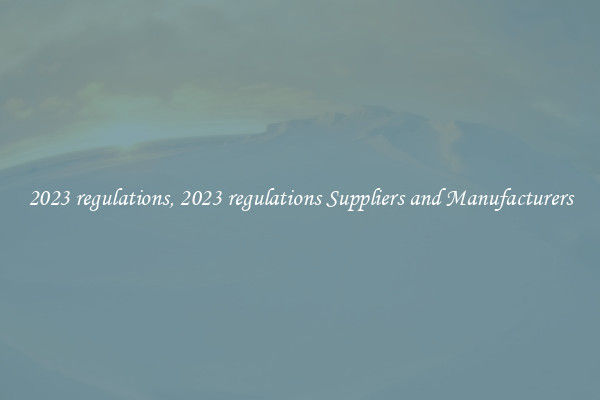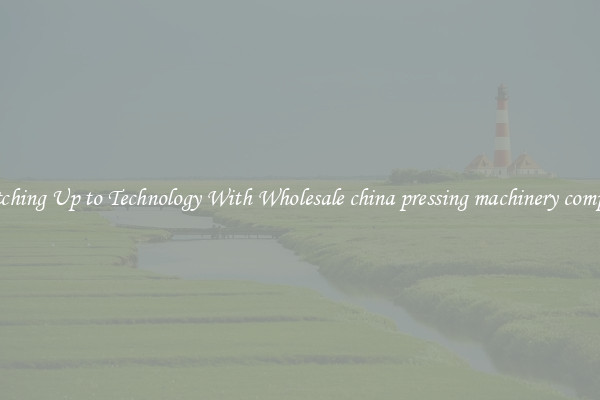2023 regulations, 2023 regulations Suppliers and Manufacturers
In 2023, new regulations will come into effect that will have a significant impact on suppliers and manufacturers across various industries. These regulations aim to address various concerns such as environmental sustainability, worker safety, and fair trade practices. Suppliers and manufacturers need to be aware of and align themselves with these regulations to ensure long-term success and compliance.

One of the key areas of focus in the upcoming regulations is environmental sustainability. Governments around the world are becoming increasingly proactive in tackling climate change and reducing carbon emissions. As a result, suppliers and manufacturers will need to adopt more sustainable and eco-friendly practices in their operations. This might include using renewable energy sources, reducing waste and pollution, and implementing recycling programs.
Worker safety is another critical aspect that the 2023 regulations aim to address. Governments are becoming more stringent in ensuring that workplaces are safe and that employees are protected from hazardous conditions. Suppliers and manufacturers will need to invest in proper safety training, equipment, and protocols to comply with these regulations. This may result in additional costs initially, but it will ultimately lead to a healthier and more efficient workforce.
Fair trade practices are also gaining prominence in the new regulations. There is growing concern about exploitative labor practices and unfair trade practices in many industries. Suppliers and manufacturers will need to ensure that they comply with fair trade regulations and treat their workers fairly. This may involve paying fair wages, providing safe working conditions, and respecting workers' rights.
In order to meet these new regulations, suppliers and manufacturers need to develop strong partnerships with their suppliers and ensure that they too are aligned with the new regulations. This includes conducting due diligence on suppliers to ensure their practices are compliant and promoting transparency in the supply chain.
Suppliers and manufacturers can also take advantage of the upcoming regulations by positioning themselves as leaders in sustainability, worker safety, and fair trade practices. By investing in environmentally friendly technologies and practices, they can differentiate themselves from their competitors and appeal to conscious consumers who prioritize sustainability.
In conclusion, the 2023 regulations will bring significant changes for suppliers and manufacturers. By adopting environmentally sustainable practices, ensuring worker safety, and complying with fair trade regulations, businesses will not only mitigate regulatory risks but also enhance their brand reputation and competitiveness in the market. It is crucial for suppliers and manufacturers to be proactive and start preparing for these regulations well in advance. By doing so, they can stay ahead of the curve and reap the benefits of a more sustainable and ethical business environment.

View details

View details

View details

View details








